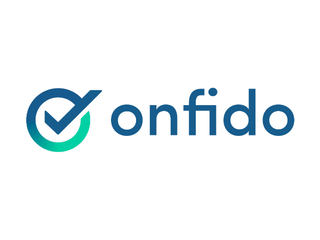
Yup picks up $4 million for on-demand tutors
New seed funding from Stanford University's StartX Fund and SOMA Capital for education app
Editor's Note: Our annual Vator Splash Spring 2016 conference is around the corner on May 12, 2016 at the historic Scottish Rite Center in Oakland. Speakers include Nigel Eccles (CEO & Co-founder, FanDuel), Andy Dunn (Founder & CEO, Bonobos), Mitch Kapor (Founder, Kapor Center for Social Impact); Founders of NextDoor, Handy, TubeMogul; Investors from Khosla Ventures, Javelin Venture Partners, Kapor Capital, Greylock, DFJ, IDG, IVP and more. Join us! REGISTER HERE.
 What on-demand service don’t we have yet…? Tutors!
What on-demand service don’t we have yet…? Tutors!
Yup, formerly known as MathCrunch, announced today that it has picked up $4 million in seed funding from new and existing investors, including Stanford University's StartX Fund and SOMA Capital. To date, the company has raised $7.5 million.
Designed for high schoolers, Yup is a mobile-first (they know their target audience) app that gives students on-demand access to tutoring help for physics (up to AP Physics I and II level), math (up to AP Calculus AB), and chemistry (up to AP Chemistry level).
Because it’s a mobile app, Yup goes beyond just simple text/chat support. The app lets students snap a photo of the problem they’re working on or the work they’ve been able to finish so far, which the tutor can then review.
To become a tutor on Yup, you need to fill out an application, pass a 45-minute online exam, and complete an interview. The company says it's possible to start tutoring in less than 24 hours after starting the application. Yup doesn't pay a flat rate to its tutors, but rather offers the "going market rate" based on the tutor's experience and skills. Notably, the company says tutors range from Ivy league graduates to schoolteachers.


"We're passionate about changing the way students learn online and the existing tutoring model is broken. Online tutoring is a warped market that's become more about cheating than learning," said Yup founder Naguib Sawiris in a prepared statement. "That's why we've developed the first mobile-based learning model that delivers personalized learning while taking steps to address the industry's cheating problem."
That model has been dubbed the Personalized Inquiry Learning (PIL) model by Yup. Basically, instead of just giving students the answer (which the company suggests some other tutoring services might do), Yup's tutors strive to see what piece of the puzzle students are missing so they can solve the problem on their own. As such, Yup must train tutors in this style to maintain consistency in teaching across the board.
Yup says its app has been downloaded by nearly half a million students.
Pricing for the app is based on a subscription model. After the initial free trial expires, users can choose between a 30-minute plan (which costs $6.99 per month) and an unlimited plan ($49.99 per month).
To be fair, the first line of this article was somewhat misleading, since there definitely do exist on-demand tutoring services beyond Yup.
Studypool, for example, has raised a couple million dollars from Lerer Hippeau Ventures and others for its online and mobile marketplace of tutors in subjects like business, programming, writing, and math. A couple other examples are Sesh and Toot (or “toot”), which focus on connecting students with tutors in nearby locations.
Related News


Onfido closes $25M to secure the on-demand economy

